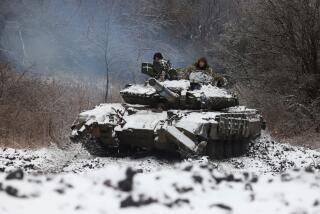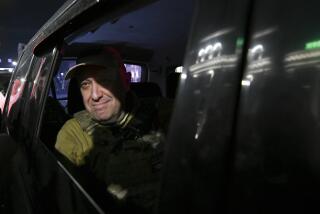The Costs of Brutality
- Share via
Frustrated by their humiliating inability to subdue rebellious Chechnya, Russia’s military leaders are adopting ever harsher measures. From now on, they say, all Chechen males between the ages of 10 and 60 will be detained and investigated for possible “terrorist” connections. The military has observed few restraints in its battle to avenge the defeat it suffered in the last Chechen war, in the mid-1990s. Now, by identifying virtually all Chechen males as potential enemies, it is moving perilously close to a policy that smacks of ethnic cleansing.
Russian popular support for the conflict is softening as casualties in the conscript army mount and as the independent media increasingly question the government’s truthfulness. Acting President Vladimir V. Putin, a vigorous backer of the war, remains the overwhelming favorite in the scheduled March 26 presidential election. He is unlikely to rein in the military any time soon. But if he is going to be Russia’s leader for years to come, he must also weigh carefully the international consequences to Russia of its brutal campaign in Chechnya.
The Chechen rebels aren’t saints. They have murdered innocents, twice invaded neighboring Dagestan and bear a heavy share of responsibility for the misery that has fallen on their land. They might, as Moscow alleges, be behind a series of deadly terrorist bombings in Russia. None of this justifies Russia’s indiscriminate tactics as it has tried to pacify the territory.
Russia should look again at its own history. Chechnya has resisted control from Moscow since it was first imposed in the 1850s, at a great cost in blood to Russians and Chechens alike, and that tradition isn’t going to disappear. A political solution that would honorably meet the interests of both sides might still be achievable. Moscow at least has an obligation to try.
More to Read
Sign up for Essential California
The most important California stories and recommendations in your inbox every morning.
You may occasionally receive promotional content from the Los Angeles Times.












